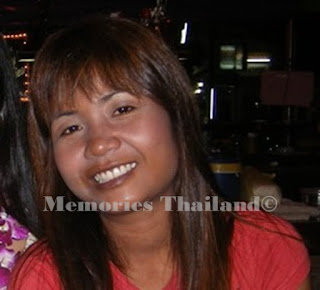Unraveling the enigmatic and mysterious Thai smile.
The Thai yim, also known as the Thai Smile, is a captivating enigma that adds to the allure of Thailand. While Westerners often perceive a smile as a simple act of kindness, for the people, it holds a far deeper significance as a crucial nonverbal form of communication and self expression.
Within the realm, there exist more than ten distinct variations, each imbued with its own unique meaning. Beyond mere pleasantries, the people also employ their laugh as a shield, utilizing this mysterious expression to ward off and resolve conflicts. To them, smiling serves as a tool for self protection and harmony.
Thai people firmly believe that it enhances beauty, making one radiate with inner grace. This conviction highlights the intrinsic cultural value placed on the yim, elevating it from a mere facial expression to an embodiment of their identity and interpersonal dynamics.
Intriguing and beguiling, the smile, continues to captivate both locals and visitors alike, inviting them to embrace a deeper understanding of the rich tapestry of the culture.
A land of unwritten laws and enigmatic smiles.
Thailand is an extraordinary country, distinguished by its peculiar set of unwritten laws that remain elusive to outsiders. These unspoken rules, concealed beneath the surface, instill a sense of order amidst the seeming chaos. While the Western world grapples with an abundance of rigid regulations that often slip from memory, the country dances to a different tune. Here, rules are sparse, and the Thai people effortlessly adapt and interpret them with a warm smile. For foreigners, comprehending this dynamic can be an insurmountable challenge, leading to feelings of bewilderment, frustration, and miscommunication. Nonetheless, the famous smiles endure, concealing mysteries beyond our grasp.
Navigating 'Thai Loss of Face', rules of conduct for harmony.
In Thai culture, preserving one's "face" is paramount and considered the gravest of concerns. To safeguard against such a predicament, Thai society is intricately woven with customs and principles that serve this purpose. Here are some essential guidelines that Thais follow to maintain their dignity and avoid loss of face.
Control your emotions.
It is crucial never to display anger or lose composure in public. Emotional restraint is highly valued and seen as a sign of maturity and self discipline.
Seek harmony, avoid conflict.
Thais prioritize harmony and strive to avoid confrontations whenever possible. Diplomacy and compromise are embraced to maintain peaceful relationships.
Speak softly and respectfully.
Raising one's voice or shouting is considered extremely impolite. Thais communicate with gentle tones to show respect and maintain a calm atmosphere.
Practice tolerance and refrain from criticism.
Criticizing others openly can lead to loss of face, as it may be perceived as an attack on their character. Thais practice tolerance and address disagreements discreetly.
Display emotional restraint.
Exhibiting excessive emotions, whether positive or negative, can be seen as a lack of self control. Thais tend to keep their emotions in check, especially in public settings.
Avoid burdening others.
Thais believe in resolving their problems independently without burdening others with their troubles. This approach fosters a sense of self reliance and mutual respect.
For Thai people, adhering to these rules is of utmost importance, as it cultivates a harmonious society where interpersonal conflicts are minimized, and understanding and empathy prevail.
The enduring laugh, a reflection of Thai resilience amidst adversity.
An unspoken but deeply ingrained rule is the art of smiling. Even in the face of calamity, a house ablaze or a severe traffic accident, you will witness Thais donning a laugh after a few moments. This may seem perplexing to outsiders, as it's not a reflection of delight in the distressing events but rather a testament to their profound belief in the unpredictable nature of life. In the midst of such tragic occurrences, they find solace in laughing, an inner strength that helps them endure life's hardships.
The importance of pride and self esteem.
As previously mentioned, the culture places great emphasis on manners and rules deemed essential by its people. Many grapple with poverty, possessing little material wealth. However, what holds immeasurable value to them is their self esteem. In the eyes of a Thai, losing this sense of self worth leaves one with nothing. Pride and self esteem instill confidence and garner respect, elements profoundly valued by every Thai, both in their interactions with others and, most significantly, within themselves.
The resilient spirit.
The people's unwavering laughings serve as a symbol of their resilience and determination to face life's adversities head on. In a world filled with unpredictability, they find strength in upholding their pride, dignity, and self esteem, seeking to navigate through challenges with a positive outlook. The enduring laugh, a cultural emblem, reflects a nation's collective spirit in finding hope amidst difficulties and embodying the unwritten law of resilience.
A Thai smile functions like a mask, used in response to various situations that a person encounters. It is a common and regular gesture, employed for several purposes such as: Apologizing, expressing gladness, indicating uncertainty, relieving tension, conveying fear, putting others at ease and expressing shame. It is a versatile and culturally significant expression that helps individuals navigate diverse social interactions.
Here are some examples of different smiles used by Thai people:
-Yim tang nam dtah: Real happy.
-Yim yair yair: To excuse yourself and save you from a painful or uncomfortable situation.
-Yim tak tai: Polite, which is used when meeting a farang or another person, for example.
-Feun yim: Forced, I have to smile but actually I don't want to.
-Yim yor: Arrogant.
-Yim mee lay-nai: Angry.
-Yim soo: The things can't get any worse so then go ahead.
-Yim cheuat cheuan: Someone who has just won over his rival.
-Yim hairng: The apologetic nervous one.
-Yim tak tan: Sorry, but you are totally wrong.
-Yim sao: "That is supposed to mask sadness or sorrow".
-Yim cheun chom: Admiring.
Indifference to protect your own.
The 'Farang' or foreigner usually thinks the Thai are indifferent because they always start laughing even when they have very serious problems. We as Westerners only get angrier when we see someone laughing at our problems. Although indifference is part of the Thai culture, it is also a kind of self-protection. When you are at a loss for words, laughter can be a solution in Thailand.
Yes can also mean No.
A Thai person can just say "Yes" and smile with it and that smile means more than the word. The smile can then mean "No" or "Maybe". So Thais can very easily say "Yes" and then mean "No". This can make the Thai language a minefield for outsiders, the foreigners. The connection of the Thai language with body language is so great that it is often incomprehensible to us, the Westerners, foreigners or outsiders.
Thai culture: words have less meaning here.
Thai culture is not a culture of speech and words like in the West. In the West, everything is easy to understand and the rules are usually clear. We want clarity and use our language to communicate: "yes" is yes and "no" is no. I believe you or I don't believe you. We need those words to understand what another person means.
Misconceptions about the Thai.
The politeness and smiling, are often interpreted by the foreigners and tourists that the Thai people are submissive and shy. Nothing could be further from the truth. Just go talk to someone who has lived in Thailand for several years. As has been written and said many times, remember one thing well about Thailand: nothing is what it seems.
It wil say nothing about the mood.
Politeness and smiles say nothing about what a Thai thinks or feels. It is an expression of something that is subject to change. When you smile, whether at joy or grief, it is difficult for us to understand the real feelings. Thai people can live in a mood that hides the reality and which they choose. We can only smile when we are happy a Thai can do this when she or he is intensely sad.
The smile is a great tool to hide flaws and imperfections. Some call it tolerance or indifference. In reality, it is an attempt to survive in a harsh world of uncertain existence and much poverty. It provides a form of independence and a shield that protects you and helps in hard and difficult times.
It is a tolerant country.
It also explains the enormous tolerance towards others and you should not interfere with others, nor criticize another. Don't worry about the problems of others. Tolerance is also meant to prevent face painting. You maintain your own self respect by not criticizing others.
Sarcasm and irony are unfamiliar concepts because, after all, you do not confront the other person with words. You only talk about topics that are useful and relevant to another without being critical or judgmental.
Tolerance also has its disadvantages.Although we as Westerners think tolerance is wonderful it also has a downside. For example, a student will never fail in school. After all, a teacher must give a good grade, the failure and failure of the student would mean the failure of the whole family. Tolerance means having a non critical attitude towards each other. The quality of work does not always benefit.
The younger generation is already changing somewhat, slowly the Kingdom is becoming a more competitive society. But even the leaders of tomorrow remain strongly tied to the culture and traditions cherished by the elders. Not interfering with others and politeness remain the most important rules of manners and not hurting or contradicting the other person. Even though it is deadly boring, always listen politely.
Rules for a foreigner, the farang.
If you think you want to correct or contradict a Thai person, do so according to the Thai rules and do it tactfully. Speak calmly, without raising your voice and, most important, keep smiling. You show respect for the other person and give them a chance to defend themselves with a smile and thus save themselves from their predicament.
It is a serious insult to yell at a Thai person in public, this will certainly not lead to a solution and can lead to loss of face. If you are vacationing in Thailand or living in this beautiful country, no matter how illogical it is to us, the Westerners, you will have to solve it anyway in the Thai way.
Happy toothless elderly Thai man.
Don't worry, be happy.
The mysterious smile is a phrase often used to describe the Thai people's tendency to smile in a variety of situations, including during times of stress or discomfort. This behavior is often attributed to the concept of "saving face" in the culture and system, which emphasizes the importance of preserving one's own dignity and the dignity of others.
It is also seen as a way to avoid confrontation and maintain harmony in social situations. Additionally, it can be seen as a sign of respect and politeness. It is considered as one of the Thai's culture way of showing kindness, warmth, and hospitality to others.

























